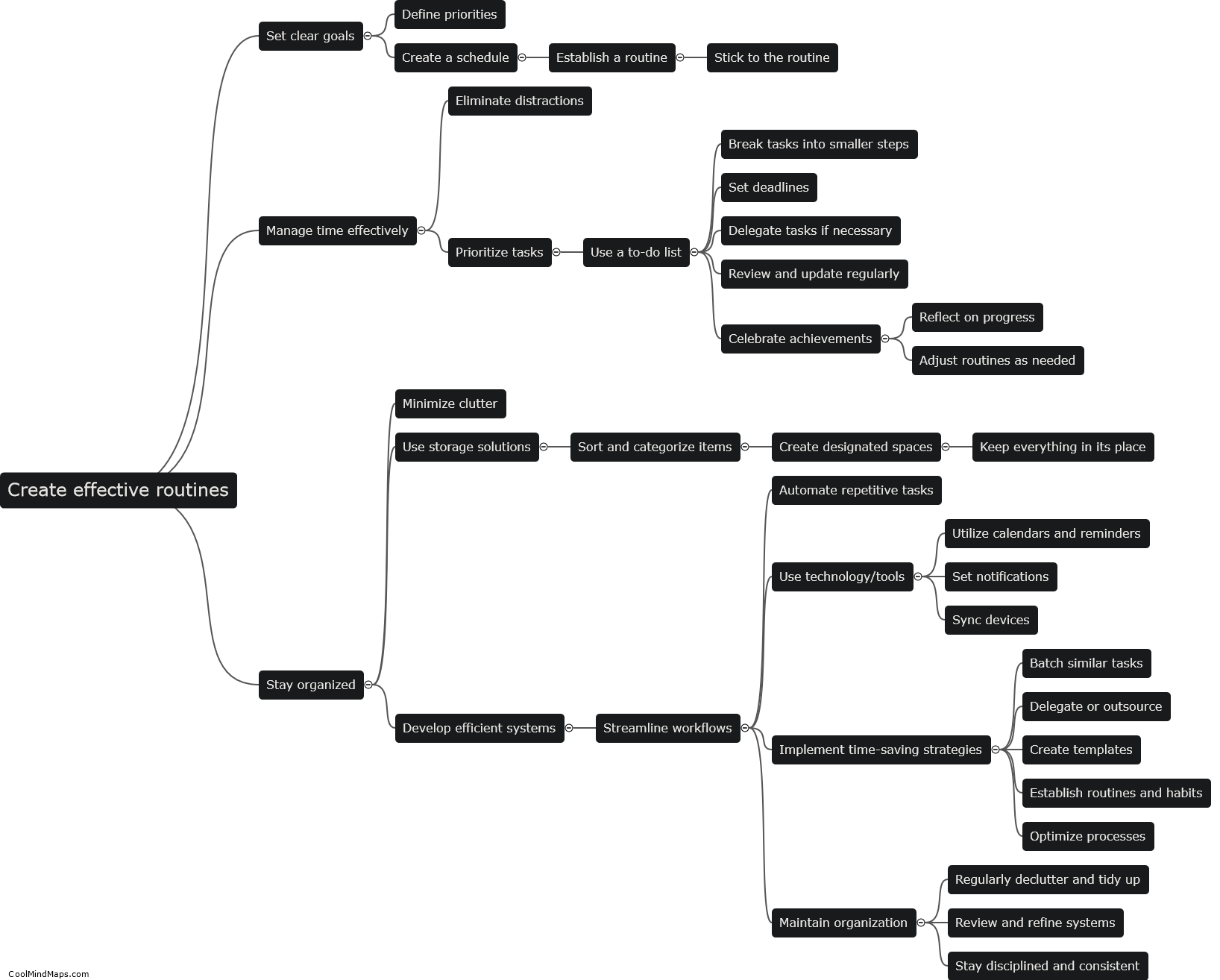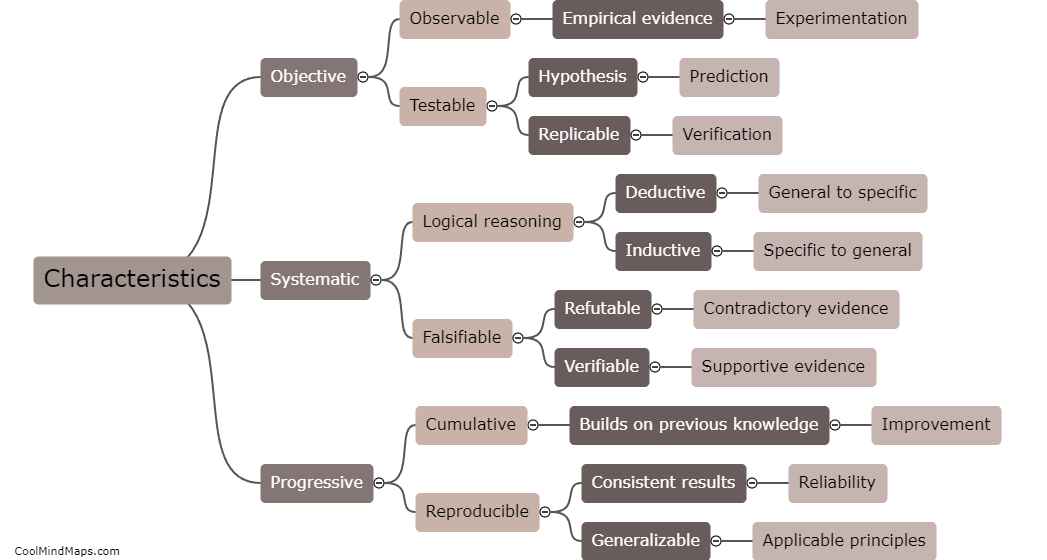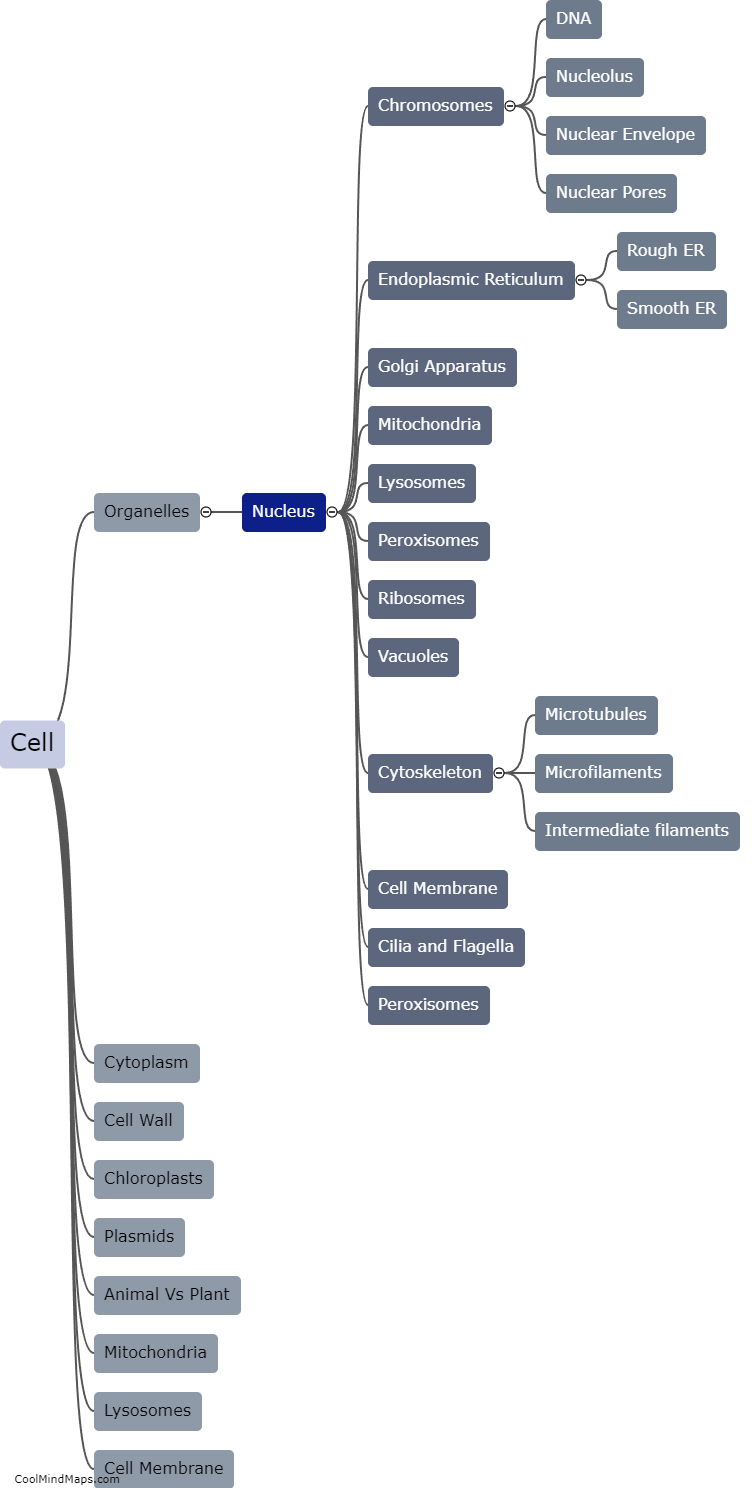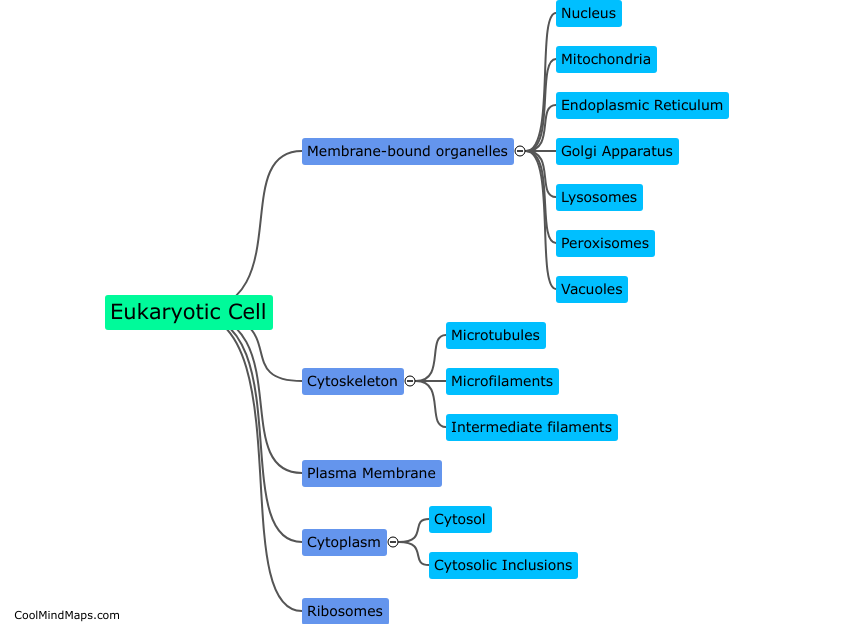What are the functions of different cell types?
Different cell types in the human body have specific functions that contribute to the overall functioning and maintenance of the body. For example, epithelial cells line the surfaces of organs and cavities, providing protection, absorption, and secretion. Muscle cells enable movement through contraction and relaxation. Nerve cells, or neurons, transmit electrical signals to coordinate communication within the nervous system. Red blood cells transport oxygen to tissues, while white blood cells play a vital role in the immune response by defending against pathogens. Additionally, cells in various organs, such as liver cells or kidney cells, are specialized to perform specific functions related to their respective organ's roles in metabolism, detoxification, filtration, or hormone production. Each cell type is crucial for the optimal functioning of the body as a whole.

This mind map was published on 24 October 2023 and has been viewed 127 times.











